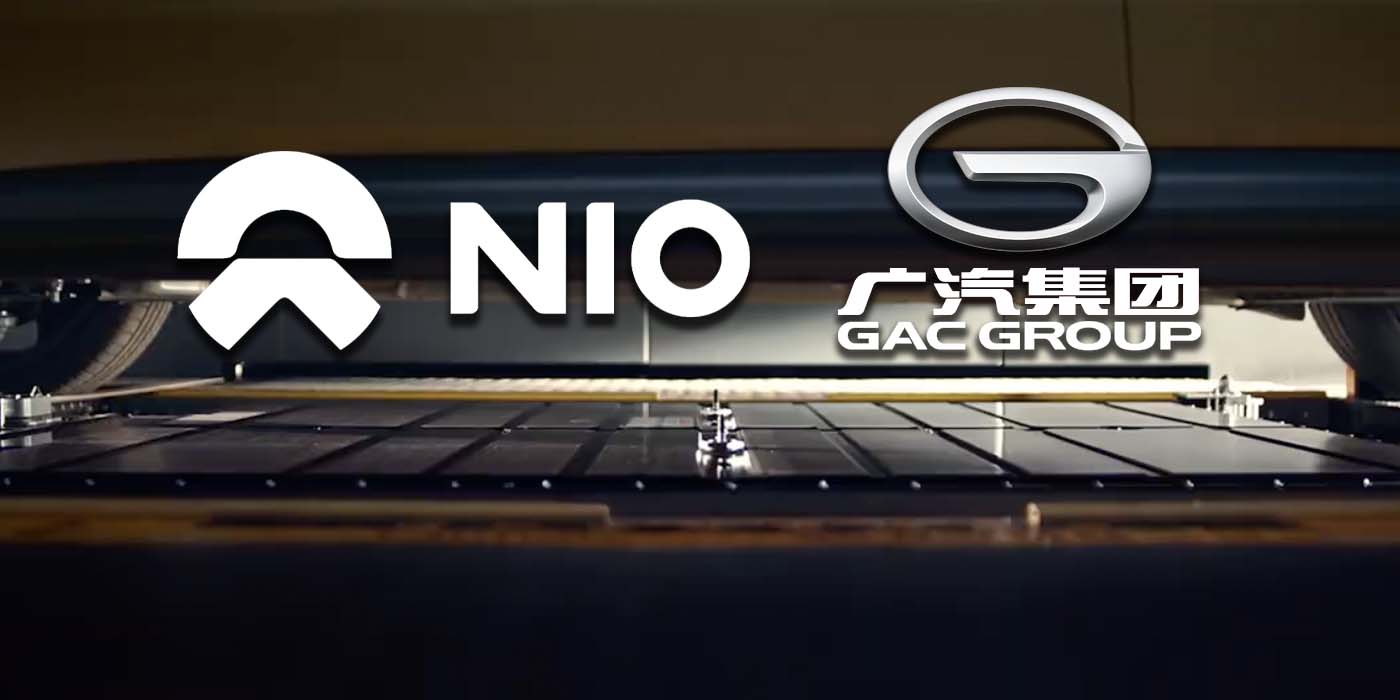
Two weeks after signing a similar strategic cooperation agreement with Lotus Technology, NIO has announced an additional agreement with China’s GAC Group to collaborate on charging and swapping and implementing a new unified battery standard.
Many readers know NIO Inc. ($NIO) for its growing portfolio of premium EVs and sub-brands, but the Chinese automaker is also the global leader in EV battery swap stations. As of October 2023, NIO has successfully completed over 30 million battery swaps around the world, proving the technology is a viable alternative to standard plug-in and charge EV practices.
To help expand battery technology, especially as it pertains to infrastructure, NIO has begun enlisting the help of some of its competitors with the goal of establishing EV battery standards in China and possibly beyond.
In late April, during the Beijing Auto Show, CEOs from NIO and Lotus Technology announced a new strategic cooperation, detailing plans to co-develop charging and battery swap technologies. Some items on their to-do list include charging and swap technologies, battery asset management and operations, service network operations, vehicle R&D and customization, and, of course, a unified battery standard system.
Just a couple of weeks later, NIO announced a similar agreement with a heavy hitter in Chinese automotive—Guangzhou Automobile Group Co., Ltd., or GAC Group for short.

GAC Group joins NIO in quest for unified battery standard
Earlier today, executives from NIO and GAC Group met in Guangzhou, China, where their new strategic cooperation will take place. NIO founder, chairman, and CEO William LI shook hands with GAC Group president Feng Xingya, while NIO Power senior vice president Fei SHEN and GAC Group vice president Xia Xianqing signed the agreement on behalf of the companies.
Similar to the previously mentioned agreement with Lotus, NIO and GAC have presented a list of targeted goals to cooperate on, many of which are similar:
- Build a unified battery standard
- Jointly develop passenger vehicles with battery swap capabilities
- Develop battery swap stations compatible with EV models from both brands
- Launch vehicles with swappable batteries designed under the standards established by both
- Advance the implementation of the swap stations catering to both NIO and GAC vehicles
- Open an interconnection of battery-swapping networks that runs on a unified operational and management system
- Establish a larger, standardized, and unified power infrastructure network to achieve economies of scale
As we mentioned before, NIO has successfully proven that a large-scale battery swap network is not only plausible, but an effective solution in quick EV charging processes. Now, it appears NIO is looking to recruit others to help standardize the technology to further streamline the swap process for consumers, no matter what make or EV model they are driving. GAC Group president Feng Xingya shared a similar sentiment:
Going forward, with the growing NEV population, battery swapping will unleash unlimited market opportunities, especially in cities. Because it actually solves a pain point for many users who don’t have dedicated parking spots. I’m glad to see that NIO and GAC can partner in this area. The strategic cooperation agreement that we signed today is also a foundation and guidance for our future cooperation. With it as a starting point, we hope to build more battery swap stations with which our GAC Aion users will have a better swapping experience.
In addition to the laundry list of items to collaborate on going forward, NIO and GAC state they will still promote the opening of their respective charging platforms to one another. So, the companies will remain collaborative in many ways while keeping some technologies close to their chests. These are still competitors in China, after all.
Still, the collaborative spirit NIO is putting out into the ether in China is inspiring and appears to be working. With GAC Group now onboard, NIO has assembled an impressive lineup of Chinese OEMs committed to developing a unified battery standard. That list currently includes Chang’an Automobile, Geely Holding Group, Chery Automobile, JAC Group, and Lotus.
FTC: We use income earning auto affiliate links. More.




Comments